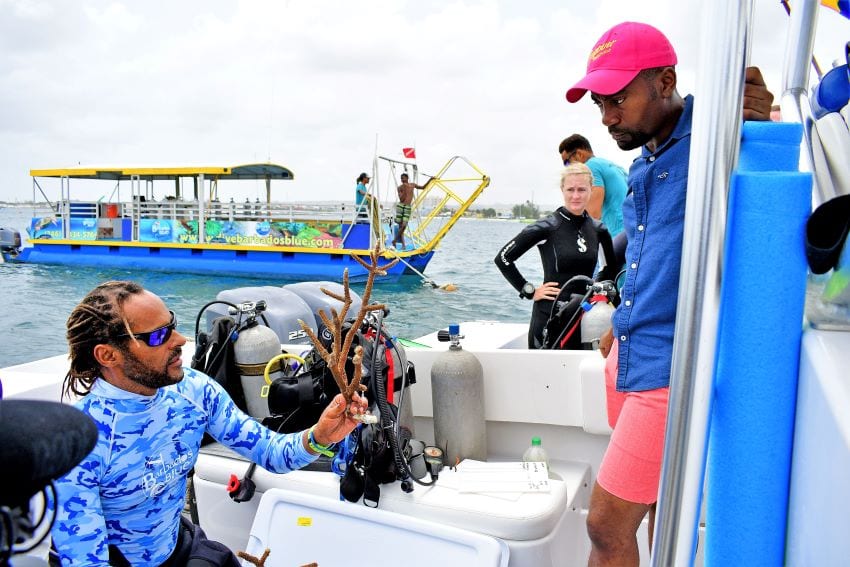
Barbados created history on Tuesday by planting 50 fragments of staghorn coral from the Folkstone Marine Reserve at Carlisle Bay for the first time, as it marked World Oceans Day, under the theme: Ocean: Life and Livelihoods.
Minister of Maritime Affairs and the Blue Economy, Kirk Humphrey, was among a team of fishermen, divers and marine biologists who set sail on the historic mission.
Speaking moments before boarding the Mojito vessel at the Shallow Draught, Minister Humphrey explained that the coral used was from some originally transported to the Folkstone Marine Park, where it was growing for the last three years.
“It will [now] be transported to the new marine managed area in Carlisle Bay. The reason I am happy about this is we have been doing this for years. This is not a sudden response. Some people may ask how is the coral going to fare. The coral started here…. I believe the coral will do very well,” he said.
The Minister further gave the assurance that the coral would be monitored over the coming weeks and months to see how it was progressing.
Marine Biologist at Barbados Blue, Andre Miller, also described it as a historic exercise, noting that it was Barbados’ coral nursery coming full circle. “It started 20 years ago when we had to remove corals that would have otherwise been killed during the expansion of the Port.
“Those corals became the hub for what is now called the Barbados Coral Reef Nursery Project,” he explained.
The Marine Biologist noted that for the first time there were fishermen also working with the corals, and learning how to handle it as they too wanted to help preserve the environment.
Mr. Miller explained that the team included junior marine biologists, paying guests and fishermen. “We had 14 divers and everyone planted two corals which will be monitored over the next two years. We will track them [and] once all goes well, we can continue to grow. We are witnessing history to see coral nurseries reach the south coast,” he stated.
He added that there were about 150 corals planted on the island’s west coast, which started out at a size of between two and three centimetres, but had now reached two metres in size.
Mr. Miller stressed that the growth rates for the southern Caribbean were “extremely high”, and as more marine managed areas were designated, more positive results were expected.
Fisherman Raymond Chow said he was happy to be a part of the exercise. He noted that overtime, divers to the island would be able to see a restored coral reef. “It is so touching to the heart,” he said.
